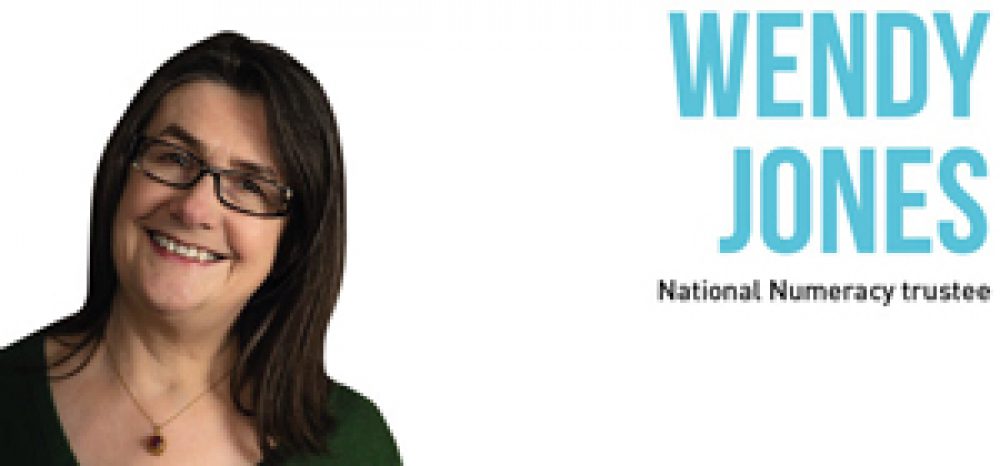The charity National Numeracy has launched a manifesto aimed at eliminating the “national scourge” of poor everyday maths skills among the UK population. Wendy Jones explains how it wants to improve adult numeracy.
‘Poor numeracy is a massive challenge for the UK and the arguments for change are overwhelming’ — these were the blunt opening words of National Numeracy’s Manifesto for a numerate UK.
Successive government have failed to make any real difference to adult numeracy. There have been some improvements in literacy — according to the Skills for Life survey a couple of years ago — but numeracy, with a lower starting point,
has got worse.
Half of adults in England have the numeracy skills roughly expected of primary school children (the adult/child comparison offers very crude linkage, of course) and more than three quarters don’t have skills equivalent to those needed for a C grade
at GCSE.
This was the context for our manifesto. A lot of our emphasis is necessarily and controversially on school maths, since that’s where it starts to go wrong for many people.
We want a new and separate focus on numeracy as a discipline that underpins every subject, leading to an additional GCSE in numeracy or core maths. That clearly has implications for the FE sector.
But it’s the thinking on adult numeracy that I’d like to concentrate on. Formal adult maths or numeracy provision has a history of neglect — of being under-valued, under-funded and under-researched.
And even though there clearly are pockets of excellence and successful innovation, the Skills for Life results suggest there has been no scaling up of good practice. We therefore would like to propose some radical cross-sector measures.
First, take the adult numeracy curriculum. We want to remove the ‘tick box’ approach which simply goes through the various skills and processes with no sense of inter-connectedness and no apparent overall goal.
We would replace this with a new model, based on the Essentials of Numeracy developed by National Numeracy in partnership with a group of maths curriculum experts. This links the different areas of knowledge and understanding to the very concept of being numerate, that is, being able to use maths to solve everyday problems, make decisions and reason, knowing which maths to use and being ready to try different approaches.
We also propose a change in the way adult numeracy is assessed and courses funded.
Providers should not be rewarded simply on the basis of the qualifications achieved — this encourages a focus on low-hanging fruit and discourages efforts with the most challenging students.
Instead, account should be taken of the student’s starting point and the progress made — the distance travelled. This is particularly important in maths where many start from a very low base and where real achievement may go unrecognised.
It’s an approach we work into our own National Numeracy Challenge, which encourages adults to improve their skills online and measures the progress they make.
We have purposefully not attempted to cost our proposals. Such costings are often wide of the mark and give politicians an immediate excuse to sideline ideas. Nor have we commented on the cut in the adult skills budget or looked at the workforce issue — we leave that to others.
Costings are often wide of the mark and give politicians an immediate excuse to sideline ideas
Instead, we major on the fundamental change in attitudes needed if the UK is to become numerate. We propose a new drive to spread the positive messages that numeracy is an essential life skill, that it can be learned and that dismissive attitudes
are harmful.
We also want to see more research into how people can be persuaded to improve their skills and develop resilience and persistence (we’re already working on this with the Behavioural Insights Team — the ‘Nudge Unit’ started in the Cabinet Office).
It is a matter of changing beliefs and behaviour — and removing the structural barriers that currently get in the way. We know that’s a huge task — but we need to start on it now.









Your thoughts